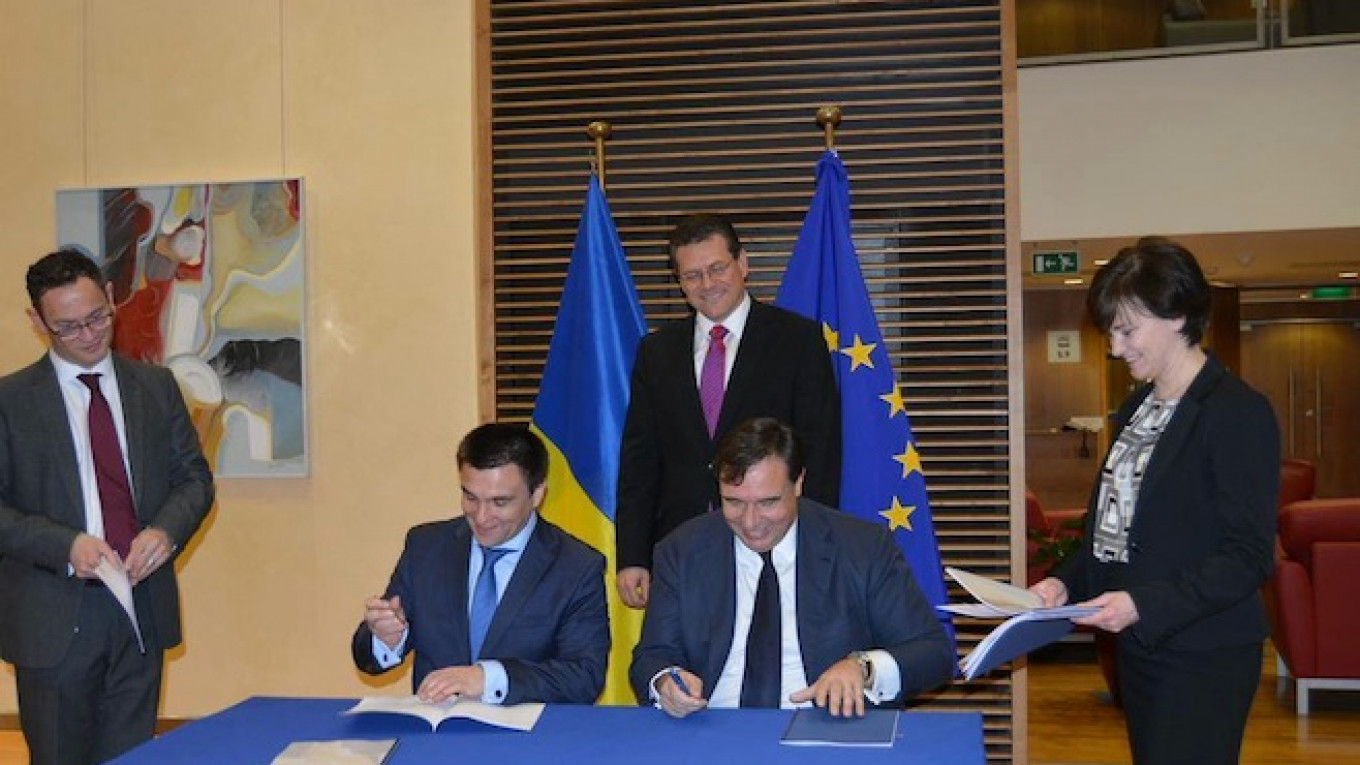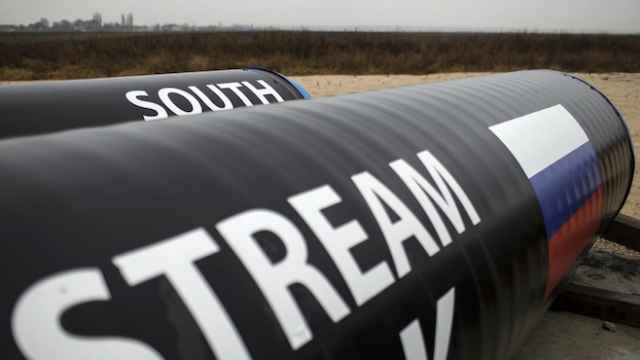BRUSSELS — Kiev secured 300 million euros ($374 million) in development loans to repair the leaking pipeline that is the main natural gas route from Russia to the EU, under a deal on Monday that the lenders said was a step toward making Ukraine a gas-trading hub.
European Bank for Reconstruction and Development (EBRD) officials, in Brussels to hand over to Ukraine 150 million euros on top of 150 million already promised by the European Investment Bank, also said the bank was considering financing gas purchases.
That could help Ukraine to pay for gas imports — potentially avoiding the kind of crisis that this year caused a six-month cutoff of Russian gas to Kiev — but any deal would have to be agreed by the EBRD board and be coupled with commitments of reform.
The deal marks the first time the EBRD has invested in Ukraine's creaking pipelines and follows five years of negotiations.
Riccardo Puliti, EBRD managing director for energy, said that because of concerns about corruption, previous energy loans had only been for grids, but the bank was now confident Kiev was serious about reforms.
"We would not have done this unless we had a very clear commitment from the authorities at the highest level," Puliti told Reuters.
The new money covers a four-year upgrade of a crucial section of the Urengoi-Pomary-Uzhgorod pipeline, including a link that allows gas to be pumped east as well as west across the Slovak border.
One of the aims is to inspire more investment and offset the collapse in confidence following Moscow's seizure of the Crimea region in March.
Puliti said Ukraine, home to Europe's most extensive gas storage, still had major potential and could provide the basis of a European spot trading market, especially now Russia's Gazprom has abandoned South Stream, which could have wiped out Ukraine's relevance as a transit state.
The reforms the EBRD demands include that Ukraine respects EU law known as the Third Energy Package, which mandates that companies that own gas supplies cannot dominate ownership of the pipelines used to ship them.
The law was the biggest regulatory obstacle to South Stream, which would have piped Russian gas directly to the EU, bypassing Ukraine.
A Message from The Moscow Times:
Dear readers,
We are facing unprecedented challenges. Russia's Prosecutor General's Office has designated The Moscow Times as an "undesirable" organization, criminalizing our work and putting our staff at risk of prosecution. This follows our earlier unjust labeling as a "foreign agent."
These actions are direct attempts to silence independent journalism in Russia. The authorities claim our work "discredits the decisions of the Russian leadership." We see things differently: we strive to provide accurate, unbiased reporting on Russia.
We, the journalists of The Moscow Times, refuse to be silenced. But to continue our work, we need your help.
Your support, no matter how small, makes a world of difference. If you can, please support us monthly starting from just $2. It's quick to set up, and every contribution makes a significant impact.
By supporting The Moscow Times, you're defending open, independent journalism in the face of repression. Thank you for standing with us.
Remind me later.






